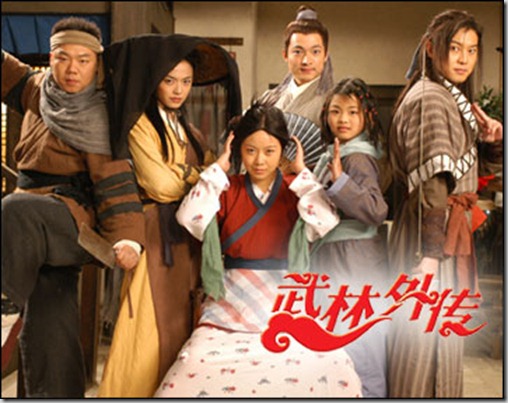wŏ de shén a
我 的 神 啊
Where does it originate?
“我的神啊 (wŏ de shén a)” first became popular from a hot Chinese TV series “武林外传 (wŭlín wàizhuàn ) My Own Swordsman” as a pet phrase of Tong Xiangyu, the owner of Tongfu tavern. Then it has been widely spread on the internet. Actually, “我的神啊 (wŏ de shén a)” is the assonance of Shaanxi dialect “额滴神啊 (é dī shén a).”
Where is it used?
Because of its dialect-originated feature, “我的神啊 (wŏ de shén a)” is usually used in informal circumstances and among familiar people. You may not say it to someone whom you have never met before or who has a higher rank than you. It is impolite.
Examples:
Someone eventually gets an offer after a long time of job-hunting. He or she may say:
Wŏ de shén a, zhōngyú zhăodào gōngzuò le. (Biăoshì jīdòng)
我 的 神 啊, 终于 找到 工作 了。( 表示 激动)
Oh, God, I finally get an offer. (Express excitement)
A man and a woman got married, but people around them never thought it would happen. They may say:
Wŏ de shén a, tāmen jiéhūn le! (Biăoshì jīngyà)
我 的 神 啊,他们 结婚 了! (表示 惊讶)
My god, they got married! (Express astonishment)
nĭ tài yŏu cái le
你 太 有 才 了
Where does it originate?
First appearing in a sketch performed by Chinese actors Zhao Benshan, Song Dandan and Niu Qun in CCTV 2007 Spring Festival Gala Evening, the phrase “你太有才了 (nĭ tài yŏu cái le)” then became very popular among Chinese young people.
Usage:
“才 (cái)” in this phrase means talent, ability to do something special. “太 (tài)” means too, excessively. And the whole phrase “你太有才了 (nĭ tài yŏu cái le)” means you are too talented or you are too competent.
Example:
Zhè bù diànyǐng hěn chénggōng, dǎoyǎn tài yǒucái le. (Biăoshì chēng zàn)
这 部 电影 很 成功, 导演 太 有才 了。(表示 称赞)
This movie is very successful. The director is too talented. (Express praise)


